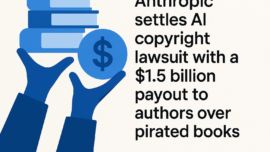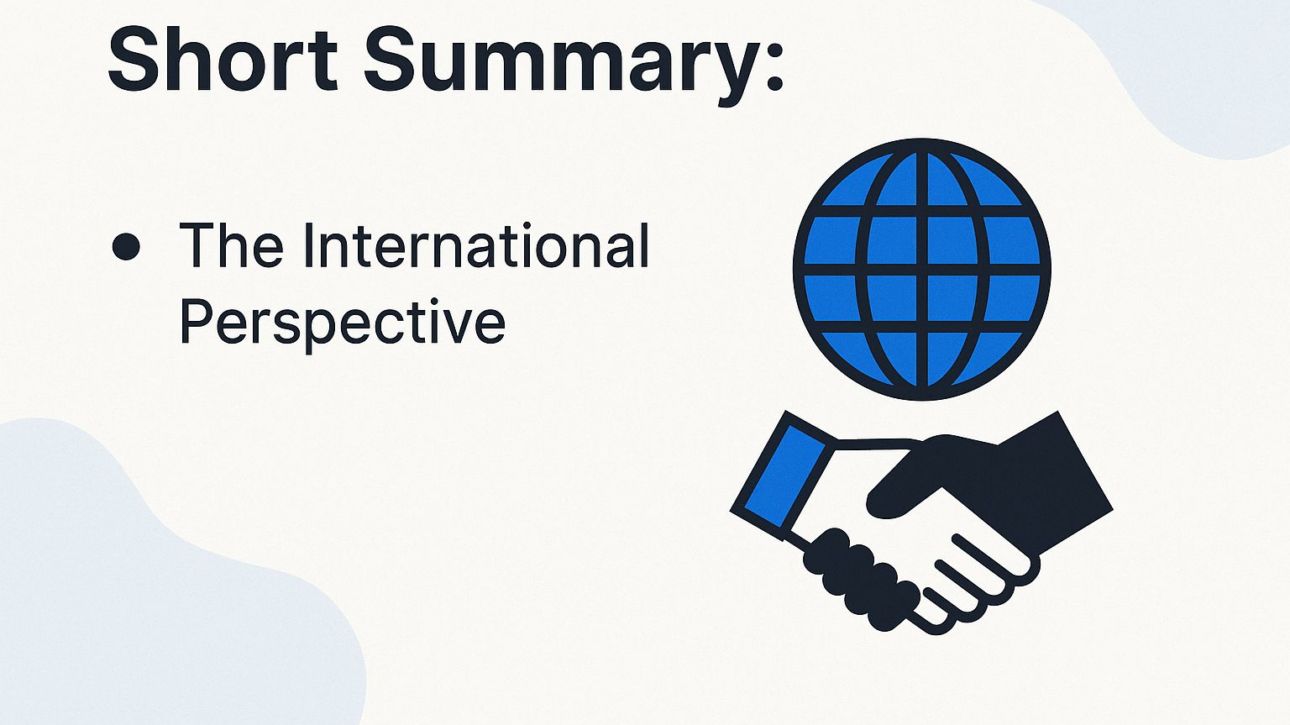In a groundbreaking legal resolution, Anthropic, the AI powerhouse, has consented to a staggering $1.5 billion settlement with authors whose works it allegedly pirated, a move that could redefine the future of copyright laws in the AI landscape.
Short Summary:
- The lawsuit centered around the unauthorized acquisition of copyrighted books for AI training.
- The settlement, if validated by a judge, marks the largest in U.S. copyright history.
- This case could reshape the relationship between AI companies and copyright holders long-term.
In an unexpected yet pivotal development in the world of artificial intelligence, Anthropic, a key player in the industry known for its AI systems, has reached a settlement worth a whopping $1.5 billion with a cohort of authors who accused the company of illegally acquiring their copyrighted materials for the training of its chatbot, Claude. The controversy began when a group led by best-selling authors Andrea Bartz, Charles Graeber, and Kirk Wallace Johnson filed a lawsuit alleging extensive copyright violations. They contended that Anthropic downloaded millions of pirated books to enhance its machine learning capabilities, raising serious ethical questions about intellectual property rights in the digital age.
This landmark settlement, which awaits judicial approval, stands to be the highest payout in the long history of copyright litigation in the United States. According to attorney Justin Nelson, representing the authors, “As best as we can tell, it’s the largest copyright recovery ever.” This remarkable development is not just crucial for the authors involved but also serves as a precedent for the entire AI industry, sending clear messages about the consequences of copyright infringement.
With the stipulations of the agreement, authors will receive approximately $3,000 for each book affected—an estimated 500,000 in total. This payout highlights a significant shift in how courts and legislative bodies may approach copyright issues concerning AI-generated content in the future. “This settlement sends a powerful message to AI companies and creators alike that taking copyrighted works from these pirate websites is wrong,” Nelson emphasized.
The legal journey began last year when Bartz and her co-plaintiffs outlined their claims, representing an expansive class of authors whose intellectual contributions were allegedly exploited by Anthropic. The lawsuit has fueled conversations regarding the ethics within the rapidly evolving AI landscape, particularly surrounding the definition of ‘fair use’. In June, U.S. District Judge William Alsup delivered a mixed verdict on the case. He affirmed that while creating AI models using copyrighted books can fall under fair use, Anthropic’s method of acquiring these texts designated their actions as unlawful.
“This will cause generative A.I. companies to sit up and take notice.” – Chad Hummel, Trial Lawyer
Anthropic’s settlement follows a tumultuous period of scrutiny and debate regarding copyright laws in the context of AI and machine learning. The federal court found that the company had downloaded more than 7 million digital books, beginning with roughly 200,000 from a project called Books3. This endeavor was initially undertaken by researchers outside of OpenAI, but it expanded, drawing in vast amounts of content from known pirate sites like Library Genesis and Pirate Library Mirror.
As we delve into the implications of this case, it’s worth noting that the financial ramifications could have been staggering for Anthropic had the settlement not reached fruition. Legal experts speculated that a loss in a trial—set for December—could have led to penalties in the multi-billions, effectively endangering the company’s future. “We were looking at a strong possibility of multiple billions of dollars, enough to potentially cripple or even put Anthropic out of business,” stated William Long, a legal analyst.
Alongside the monetary compensation, the terms also dictate that Anthropic must destroy the original pirated book files. The company’s statement following the settlement indicated a commitment to ethical AI development, saying, “We remain committed to developing safe AI systems that help people and organizations extend their capabilities, advance scientific discovery, and solve complex problems,” commented Aparna Sridhar, Deputy General Counsel at Anthropic.
The Authors Guild has praised the settlement, with CEO Mary Rasenberger remarking, “an excellent result for authors, publishers, and rightsholders generally.” This sentiment reverberates throughout the community, encapsulating a collective sigh of relief among creative professionals who fear their work could be appropriated without consent.
The International Perspective
However, while the settlement is a significant win for authors in the U.S., criticisms have surfaced regarding the broader implications for international writers. For instance, the Danish Rights Alliance has raised concerns that this agreement may not extend support to European authors whose works might remain unprotected if they are not registered with the U.S. Copyright Office. Thomas Heldrup, a prominent figure in content protection, noted, “On the one hand, it’s comforting to see that compiling AI training datasets by downloading millions of books from known illegal file-sharing sites comes at a price,” highlighting the nuances and disparities across national copyright frameworks.
Anthropic, established in 2021 by key figures from OpenAI, has recently attracted attention due to its impressive market valuation, skyrocketing to $183 billion after securing a substantial $13 billion funding round earlier this week. This meteoric rise underscores the considerable investor interest surrounding AI technologies, despite the company not reporting profits yet. This reliance on continuous investment to fund operations while navigating lawsuits indicates the financial pressure faced by AI startups.
Looking ahead, the implications of this settlement reach far beyond Anthropic. It sets a preeminent precedent that could influence other ongoing disputes and encourage dialogues between AI developers, authors, and content creators. Notably, legal battles involving major companies such as OpenAI and Microsoft about similar copyright issues are ongoing, wherein authors and content publishers continue to raise alarms about their intellectual property. Long expressed hope that this settlement indicates a shift towards an environment where “creators and AI companies can reach settlements without having to essentially go for broke in court.”
“If you want to grant more copyright to AI-created content, you must also strengthen mechanisms that compensate humans for their original contributions.” – Alex Yang, Professor of Management Science and Operations
While Anthropic has positioned itself as an ethical alternative within the competitive AI marketplace, this case spotlights the profound complexity surrounding AI-generated content and the vital importance of intellectual property. The shift toward responsibly managing copyrighted materials will likely shape future business practices in the rapidly evolving landscape of AI technology, ultimately benefiting not just the companies involved, but also the creators whose voices continue to drive innovation.
This saga highlights the pressing necessity for any aspiring blogger, writer, or content creator to remain informed about the evolving landscape of copyright laws in the context of AI. As tools like Autoblogging.ai enable AI-driven article generation, understanding the legal frameworks surrounding content creation becomes essential. Utilizing AI responsibly in crafting SEO-optimized articles ensures that respect for authors’ rights is an integral component of the process. For those interested in further exploring how AI can be leveraged thoughtfully in writing, check out our knowledge base for valuable insights.
As we move forward, it’s crucial for both AI creators and authors to converge on ethical practices that not only foster innovation but also respect the hard work and creativity of individuals behind written works. Time will tell how effectively these new standards resonate across the industry, but for now, the landscape appears poised for change.
Do you need SEO Optimized AI Articles?
Autoblogging.ai is built by SEOs, for SEOs!
Get 30 article credits!



